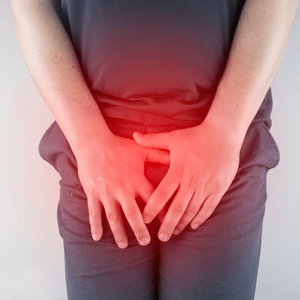A common problem today is stomach heaviness. Eating too quickly and excessively due to poor dietary habits, a lack of balance and our dietary habits have led to this problem.
It is hard for your stomach to digest unhealthy foods. If you consume high fat or high sugar meals or desserts, you may consequently feel "heavy" or "bloated."
Let's look at why your stomach feels heavy and how you can avoid it in the future.
Why Does Stomach Feels Heavy
The cause of heaviness in your stomach is often a reflection of your eating habits, such as:
- Eating too much
- Eating too quickly
- Consuming food too frequently
- Overindulging in greasy or heavily seasoned foods
- Eating foods that are difficult to digest
How To Treat Heaviness in Stomach
There are different treatment options for stomach heaviness depending on what's causing it.
Changing specific aspects of your lifestyle may be the first step your doctor recommends.
This may include the following:
- Ensure that you limit or avoid foods that are fatty, highly seasoned, and difficult to digest.
- Exercise more frequently.
- Reduce anxiety and stress.
- Avoid caffeine and alcohol.
- Make dietary changes. Reduce your portion sizes.
Home Remedies For Treating Heaviness in Stomach
1. Apple Cider Vinegar
Because ACV is naturally acidic, it could help increase stomach acid levels, aiding digestion for those who have low stomach acidity. In theory, this could help prevent gas and bloating, which slow digestion may cause. Additionally, it is antimicrobial, which may help kill bacteria in the stomach and intestines.
2. Baking Soda
In this remedy, combine 1/2 teaspoons of baking soda with 4 ounces of warm water and drink. Don't consume large amounts of baking soda. Baking soda effectively neutralises stomach acid and relieves indigestion, bloating, and gas after eating.
3. Ginger
Ginger stimulates the body's digestive enzymes and is an anti-inflammatory, helping to relieve inflammation and protect the stomach lining. It has been used as a natural digestive aid for centuries to alleviate gas, bloating and stomach pains.
4. Peppermint
An antispasmodic medication, peppermint oil, relieves stomach cramps, bloating, and heaviness, especially if you suffer from irritable bowel syndrome (IBS). It works by relaxing the muscles in the bowel wall.
How to Prevent Heaviness in Stomach
- Include protein in your food intake: Protein does not increase insulin levels the same way carbohydrates do, helping you prevent Postprandial Somnolence.
- Drink a cup of tea before having food: This will help with digestion and prevent an upset stomach.
- Take a walk: Go for a light 15 minutes walk to help energise you and reduce drowsiness.
- Eat slowly: Eating quickly can slow down your digestive process and also cause you to inhale more air, which could cause you to experience abdominal swelling.
- Avoid skipping breakfast. If you miss this important meal, you'll only become hungrier later and eat more than is necessary.
- Eat fewer fats, sugars, and food: Whenever possible, choose grilled or steamed foods instead of fried, breaded, or battered foods. If the portion of your food is large, eat some and save the rest.
Bottom Line
If you feel heavy in the middle, it may just be a result of your lifestyle choices, which can easily be corrected with a change in behaviour. It could also be a sign of an underlying condition, however.
You can call your doctor to get a diagnosis and treatment plan for relief if the feeling of heaviness persists.














